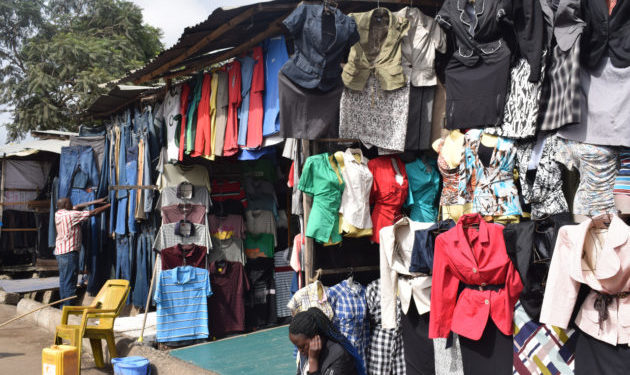Kenya emerges as a significant disposal site for second-hand clothes, known locally as mitumba, primarily due to the prevalence of low-quality items in a recent study titled “Destinations of Dutch Used Textiles”.
Conducted across Ghana, India, Kenya, Poland, and Pakistan, the study also unveils a network of cloth laundering operations centered in Poland and Pakistan.
According to the findings, the Netherlands annually exports 1,049 tonnes of second-hand clothing to Kenya. However, the study uncovers additional imports of 1,145 and 1,146 tonnes, respectively, facilitated by laundering schemes in Poland and Pakistan, contributing to Kenya’s influx of substandard garments.
The report highlights a concerning statistic, estimating that approximately 150 to 200 tonnes of used textiles, destined for immediate disposal, enter Kenya daily. This trend aligns with insights from Dutch sorters, who acknowledge the inferior quality of textiles destined for Pakistan, and presumably, subsequently re-exported to Kenya.
Despite entering through the port at Mombasa, used clothes predominantly circulate in Kenya’s largest market, Gikomba, supporting thousands of livelihoods.
However, the report notes that between 20 to 50 percent of imported second-hand clothes are deemed unusable upon arrival, exacerbating environmental challenges as unfit garments accumulate in landfills and waterways.
Further analysis underscores a significant trade disparity, with Kenya importing 183,506 tonnes of second-hand clothes while exporting a mere 1,519 tonnes. This stands in stark contrast to the Netherlands, which imports 63,672 tonnes while exporting 167,674 tonnes.
Mitumba retailers in Kenya express dissatisfaction with the disconnect between pricing and quality, exacerbated by the absence of a robust feedback system involving exporters, importers, and wholesalers, hindering the return of substandard goods.
The study sheds light on Kenya’s pivotal role as a recipient of low-quality second-hand textiles, emphasizing the urgent need for systemic improvements to address environmental concerns and ensure fair trade practices.












